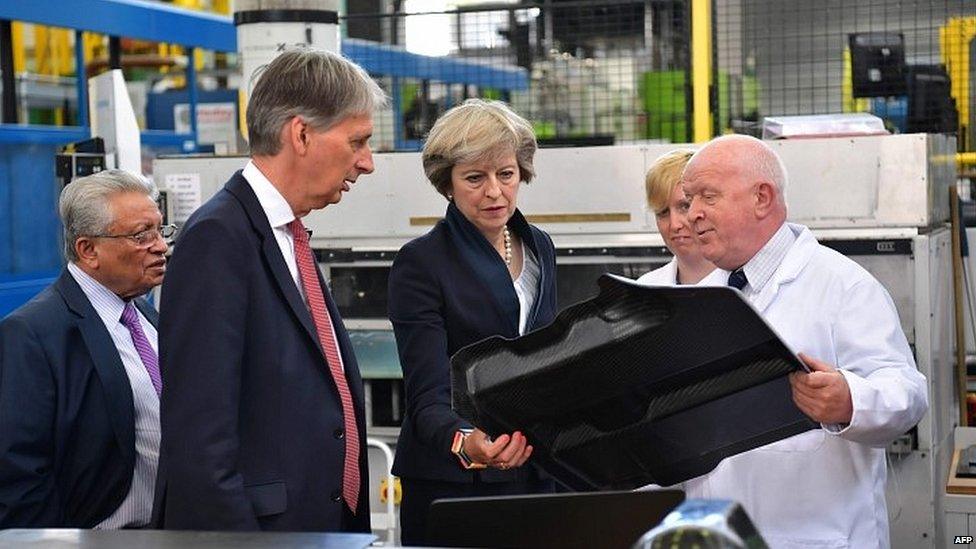Tory economic policy: Out with the hawks
- Published

Philip Hammond and Theresa May are striking a different tone on the economy
Out with the deficit hawks - in with the conservative pragmatists.
That might not, well, quite catch on. But there is certainly a sense of down with the old regime at the Tory conference today. Philip Hammond isn't just a totally different character to the former occupant of the job, George Osborne, but he is intent on junking a fair bit of Mr Osborne's approach too.
His targets for getting rid of the deficit are being ditched. Let's face it, George Osborne missed them time and again in any case, but it is politically a big shift for Mr Hammond and Mrs May to tear up the previous borrowing rules, when balancing the books was the central mission of the government they were all part of.
Instead, there will be a new "framework" but sources close to Mr Hammond believe that setting specific targets is a fool's errand. But given that Mr Osborne's target was extremely unlikely to be met, the political change is perhaps bigger than what it means in practice.
But what's different too, is that the the new chancellor will also borrow money to spend it - there'll be an announcement later to borrow £2bn to spend on housing. There were hints that Mr Hammond might do the same to build new infrastructure.
But don't expect tens upon tens of billions of pounds of public money to gush suddenly across the land. Philip Hammond, a careful, rigorous Conservative, has not suddenly become a full-throttle Keynesian.
Nonetheless it's a distinct change to the previous administration, although whispers suggest that with the uncertainties of Brexit, George Osborne was moving towards shifting his approach before he was unceremoniously dumped.
But what's also different about Mr Hammond is his style - don't expect any flashy announcements or any flashy phrases. In fact, like the overall tone of Theresa May's government, there is a lot less flash.
Yet even in his non-dramatic fashion, he has already made pretty downbeat predictions of what might happen to the economy as the reality of life outside the EU emerges.
Whatever political promises he makes today, what happens to the economy will determine his success or failure as chancellor, and he knows, even without the uncertainties of Brexit, that's not all within his control.